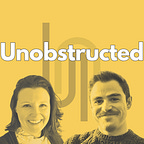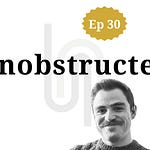I was in high school the first time a friend of mine took their own life. I remember sitting in class one morning, confused as to why my phone was going nuts. That’s how I’d found out.
I was shell-shocked.
His name was Calvin. We weren’t super close, but we played on the same lacrosse team and went to the same summer camp as kids. He was the funniest guy I think any of us knew. One of those naturally hilarious types that even teachers couldn’t help but love. And he was a real big pain in the ass for them, too. But he had this endearing, super-powered charm to him.
After he’d pull some shit, they’d be like, “Calvin… what the fu—you can’t do that.” Every single time they’d try to be angry, but they’d say it with a grin. That’s when he’d put on a sheepish smile, say “sorry,” and make everything all better again.
I think I was stunned because I never would’ve expected something like this to happen to someone like that. Definitely not to him. It delivered a gut punch of wondering what else I’d been wrong about…
I couldn’t stop thinking, “how did we miss this?”
If you or someone you know is struggling or in crisis, call or text 988.
You can also go to 988lifeline.org to chat with the 988 Suicide & Crisis Lifeline.
Why talking about mental health still feels so uncomfortable.
We don’t talk about mental health in ways that encourage vulnerability, so we don’t feel comfortable sharing about our struggles with it. The other layer to Calvin’s passing was that our friend’s dad unexpectedly passed away the same week. I was really struggling myself at the time, too. And it made me wonder if anybody knew, or if they were worried about me.
I’m ashamed to admit this, but after my initial shock had subsided, I remember thinking “I have to wait—I can’t do that right now because it will destroy the people in my life to deal with this again.”
When Calvin took his own life back in high school, he saved mine.
Talking about mental health is something I’ve become incrementally more comfortable with over the years. It’s taken a lot of practice. Many people have helped me get to where I am now. I’ve divulged low moments publicly before. I’ve given keynotes, written stories, and shared videos about my struggles in the hopes they help someone who needs it. But I’ve never shared that particular story.
The Unobstructed Podcast: Episode 28
In this episode of The Unobstructed Podcast, Rachael and I have an important conversation about mental health and substance abuse. More specifically, we talk openly about the stigma surrounding suicide and addiction. We get into what it actually looks like to create empathy, understanding, and support for those struggling.
How to spot when someone’s struggling and what to do about it.
Things shifted for me after Calvin passed. I got really curious about trying to be able to recognize warning signs in others. A year or two later, I was at an event where I was volunteering with a group of high school students. A student in my group had expressed pretty significant mental health struggles and suicidal ideation. The reaction from the other group members was, understandably, discomfort. They were peers, I was leading the group. And I was aware of everyone’s discomfort. So I followed up afterwards—I intervened and we were able to get that student the help they needed.
When people are in crisis, sometimes there’s a fear of pushing them away even if you’re trying to invite them in. When that student vocalized their struggles, I went to somebody else at the organization and said, “hey, here’s what’s going on… I need help… I don’t know how to navigate this.”
Sure, I’d done training on mandatory reporting. There was all of the other stuff I had gone through and learned about navigating events like that. But being in a real crisis situation is different. Suddenly you’re reaching into your brain for answers while it’s preoccupied with helping you breathe normally.
Being present and pulling others in is enough.
The best thing you can do when someone’s in crisis is to be present with them while enlisting others to help. When I asked for help with the student in my group, it forever changed how I think about supporting others. The person I’d gone to told me that it wasn’t my job to be responsible for that person—it was to be an advocate for them. And that I’d done the right thing since I was advocating for them already.
The first time I asked someone directly about their suicidal ideation, it was uncomfortable. And it was probably pretty messy, too. I’ve been in situations like these a few other times since then, and I’ve become more comfortable with the phrasing and choreography.
First off, address the discomfort… it makes you human. Say why you’re bringing this up, even if you end up stumbling your way through it.
“I’m asking because I care about you and your well-being.”
You can even make yourself the scapegoat.
“…I’d be upset with myself if I didn’t ask.”
Then, be as direct as possible.
“So I wanted to check in—are you having suicidal thoughts?”
Other variations I include:
“Are you safe?” and “do you have anyone that you talk to about this?”
This is where it’s important to be an advocate instead of making yourself responsible for them. Help looks like approaching the subject directly, actively listening, and enlisting the help of professionals whose job it is to handle crisis situations.
If you or someone you know is struggling or in crisis, call or text 988.
You can also go to 988lifeline.org to chat with the 988 Suicide & Crisis Lifeline.
Mental health can challenge anyone, usually when you least expect it.
In a recent conversation, Rachael was visibly shaken after sharing that she’d just lost someone in her social circle to suicide. I felt a pang in my stomach while I listened to her describe someone that sounded a whole lot like Calvin.
“She was one of those people that walked into a room and made sure to say hello to everyone” Rachael had said in a slightly-distant tone with an air of disbelief. After a deep breath she’d continued, saying “She made everybody feel welcome. She would come up and just start talking to you… really one of the warmest people you could ever meet.”
I watched Rachael’s face as her thoughts formed. It was then that she asked the question that opened the door for us to have an incredibly raw, but enormously important, conversation: “How does someone who generally has that outlook choose to end their own life?” Then, voice trailing off, Rachael shared a realization, “She must have been feeling so much pain and hurt and anguish.”
Connection comes from listening, not fixing.
You just never know what people are going through. I really hate that platitude, but there’s so much truth to it that I think it actually deserves attention. People seem to be talking about mental health more, which I’m grateful for, but sometimes I think it comes off a bit performative. There’s a lot of talk where people say the right things, but don’t seem to actually do the actions that go with them.
In everyday life, I keep hearing about how we should talk to people more. And that we should ask how they’re actually feeling, because of how important it is to truly listen to each other. But when someone says they’re having a hard time, there’s a lot of toxic positivity that takes center stage, almost immediately.
That’s the shit that sounds something like “keep your head up” or “everything happens for a reason.”
Barf.
The truth is that more people relate to our mental health challenges than we think.
I’ve stayed quiet in the past because it’s felt like people wouldn’t be able to relate. But I’ve come to realize that staying quiet just means we all suffer in silence. If we talk about mental health, that’s how we start to feel more connected and less isolated.
If you feel like you can’t talk about something, it makes you feel really alone. And it’s that kind of thing that limits our rational thinking. The more isolation we create, the more we limit our view of the options available to us. Talking about my suicidal thoughts, depression, and anxiety with other people helped me feel less alone.
Therapy works, but it won’t solve your problems for you. It does, however, uncover them in the presence of someone who’s trained to help you navigate the shit that shows up.
We talk through all this and more in the episode. You can listen above via Substack and also on Spotify, Apple Podcasts, and Amazon Music.
onward.
P.S. If you’re new to my work, I think you’d also enjoy my blog. That’s where you’ll find everything I publish, including my daily email series.












